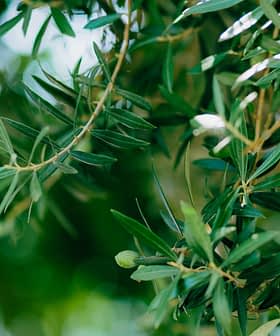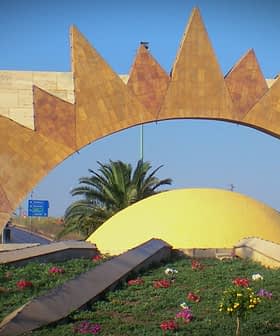Olive Branch Extends to Rio
Brazil is a major olive oil consumer with deep cultural ties to Portugal and the olive's symbolism runs throughout Olympic history. And it just so happens Olympic athletes eat it too.
 The front of every Rio Olympics medal features an olive leaves as a major design element.
The front of every Rio Olympics medal features an olive leaves as a major design element.Olive oil continues to play a role in the Summer Games in Rio, from its use in athlete nutrition to its symbolic significance. Brazil’s love for olive oil is rooted in its close historical ties to Portugal, and the country has also emerged as a major importer and producer of olive oil.
Olympians in Rio might not be coating their entire bodies with the stuff as their predecessors in 776 B.C. did, but olive oil will still play a role in these Summer Games.
From the nutritional regimes followed by athletes to the symbolic significance of the olive branch, to the growing role of Brazil as a major export destination for EVOO, the olive tree, its fruit, and its oil are there at the event and throughout its host country.
Brazil’s close historical ties to Portugal and Portuguese cuisine form the nation’s love of olive oil. A blog post on Flavors of Brazil notes that in Portuguese-influenced Brazilian dishes, “olive oil is almost always the only vegetable oil used. Salt cod (bacalhau) without a liberal sprinkling of olive oil is unthinkable, and Portuguese-inspired soups and stews invariably employ olive oil. But even dishes which can’t be traced back to European roots, like the Afro-Brazilian dishes typical of Bahian cooking, often call for olive oil”

It’s a good bet that many of the world’s athletes are including good fats like olive oil in their training diets. U.S. track and field stars, long distance runners Amy Cragg and Shalane Flanagan most certainly do. Flanagan wrote a book on the subject. Run Fast, Eat Slow, extolls the virtues of fats like those found in nuts and olive oil as critical to optimum performance.
Brazil is the fourth-largest importer of olive oil in the world. According to the International Olive Council, as of 2015, it was estimated that the country’s imports neared 80,000 tons, with the majority coming from the Mediterranean and the bulk of it virgin grade.
In a 2014 Olive Oil Times article, Charlie Higgins described the emergence of Brazil as a producer of olive oil too, citing climate and soil productivity similar to European countries. “Though still in its infancy, domestic production has taken off in recent years. The bulk of this growth is occurring in the state of Rio Grande do Sul, which enjoys a similar climate and soil type to neighboring Uruguay, another country with tremendous potential as an olive oil producer and exporter.”
More recently, Lisa Radinovsky reported on a gift presented to Brazil by Greece, as an olive branch from the “Monumental Olive Tree” in Vouve, Crete was cut and offered as a symbolic gesture of peace.
Considered by some to be the oldest olive tree in the world, possibly dating back thousands of years, the tree’s branches have been used in ceremonies since the Athens Games in 2004. Since ancient times, olive branches from sacred groves have been used to crown the heads of Olympic victors.









